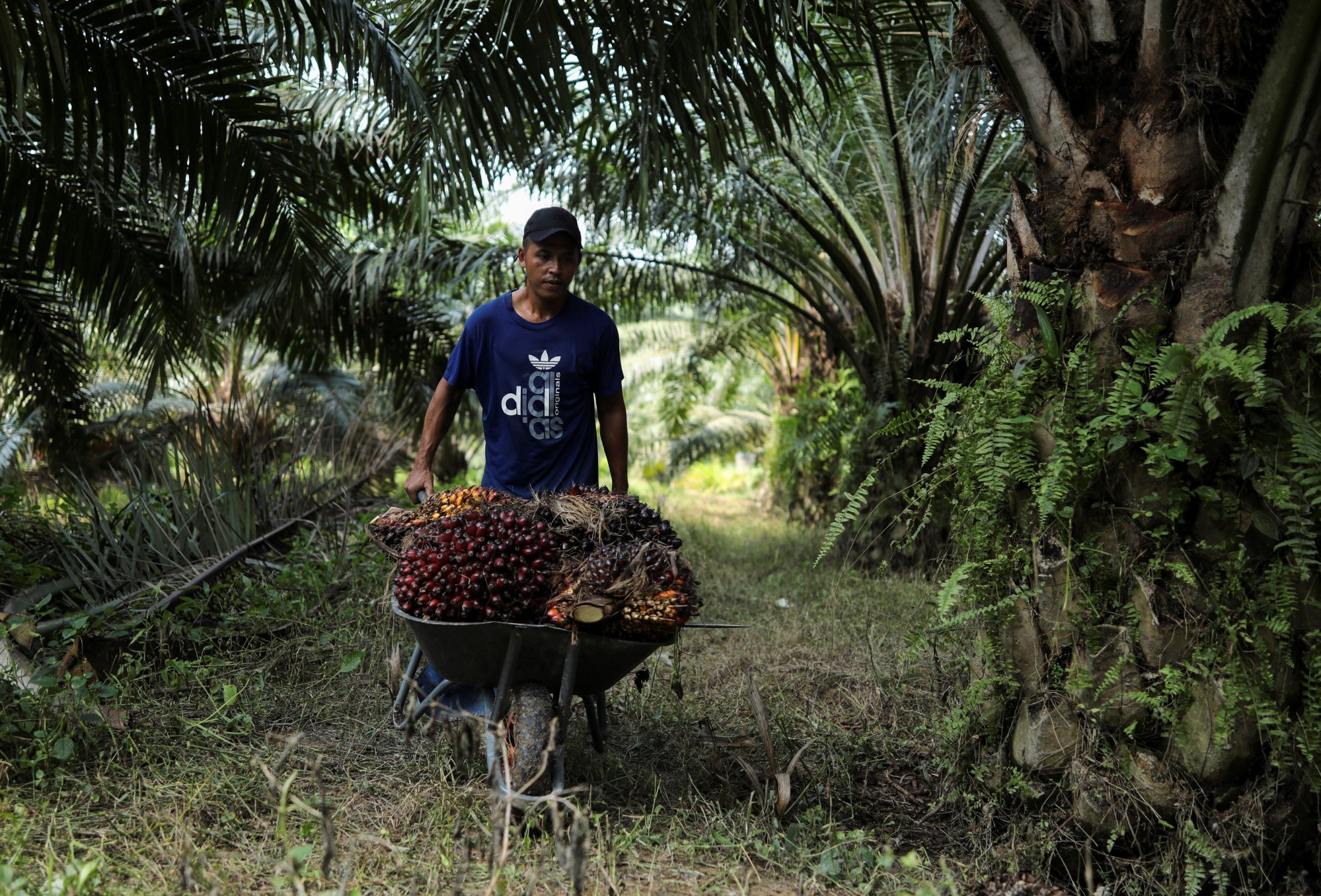
Malaysian police raid against illegal migrant workers fuels ‘xenophobic’ views amid calls for greater tolerance
- The raid in central Kuala Lumpur has led to many Bangladeshi workers becoming fearful and avoiding the area
- Malaysia’s economy is highly dependent on migrant workers taking up low-paying jobs that are shunned by many locals
Over 1,100 undocumented migrants were detained after Thursday’s raid along Jalan Tun Tan Siew Sin, pejoratively dubbed “Mini Dhaka” by locals for the predominance of Bangladeshi businesses and workers in the area.
The raid saw over 1,000 officers from the Royal Malaysian Police’s paramilitary wing – which is normally tasked with counter-insurgency and counterterrorism – deployed to search premises and check the relevant documents of foreign workers.
Previously a hub for buses in the city centre, Jalan Tun Tan Siew Sin is cluttered with derelict shop lots that are now mostly occupied by migrant-owned businesses including restaurants, telecommunications stores and remittance offices serving Bangladeshi workers that form the backbone of many construction projects in the city.
In the lead-up to Christmas, Bangladeshi-run businesses continue to open in the area, albeit with lesser foot traffic compared with past holiday seasons.
Malaysian row over Christmas cake leaves sour taste amid pivot to conservatism
“Many [Bangladeshis] got scared after what happened,” said Habibur Rahman, a Bangladeshi man selling luggage at one of the stores.
The suspected illegal migrants are being detained at the Kuala Lumpur police academy while awaiting processing by the authorities.
Meanwhile, three police officers are being questioned over 85,000 ringgit (US$18,000) of cash that was purportedly stolen during the raid.
Nonetheless, the police have received plaudits for the raid from online users, some of whom have criticised migrant workers for being “arrogant” and “acting like locals”.
The number of people detained in the raid was the largest since May 2020, when authorities rounded up hundreds at the height of the Covid-19 pandemic.
Acid attacks, death threats: Malaysian filmmakers in trouble with conservatives
“There is a Mini Dhaka, Mini Jakarta, Mini Yangon and Mini Kathmandu. In Sabah, there is a Mini Manila,” said a YouTube user, adding that the number detained in the raid was just a drop in the bucket.
Migrant activist Adrian Pereira said he was appalled by the negative attitudes among some Malaysians towards migrants, calling it a failure of society.
“This is totally uncalled for, very mischievous, racist and xenophobic,” Pereira told This Week in Asia.
He said such reactions typically target migrant workers from poorer countries rather than professionals from other countries who set up businesses in Malaysia.
“There is something wrong with our mindset and world view,” he said.

Around 2.5 million legal migrant workers are living among 33.5 million citizens in Malaysia, the country’s official data shows.
Unofficial estimates of undocumented migrants range from 1.2 million to 3.5 million, making Malaysia one of the largest migrant-receiving countries in Southeast Asia, according to a report by the UN’s International Organization for Migration (IOM).
Indonesians from nearby Sumatra make up the largest percentage of migrants in Malaysia, followed by those from Nepal and Bangladesh.
Their presence reflects a reality of the Malaysian economy in which many locals from the expanding middle class shun menial jobs that mostly migrants fulfil.
In a post on X, formerly known as Twitter, Minister of Economy Rafizi Ramli described Malaysia’s heavy reliance on migrant workers as a “structural failure” and a diversion from the country’s goal of achieving sustainable growth driven mostly by locals.
“The effect is not just on job opportunities [for locals] but also the outward flow of the currency that happens when they send their salary back home every month,” Rafizi said last Friday, adding that this has hurt the value of the Malaysian ringgit.
On Monday, he addressed the issue again and said on X, “When we asked employers, they say that locals no longer want to work in certain industries, mostly due to salary.”
According to the IOM’s report, most migrant workers arrived in Malaysia legally but a number were undocumented due to exploitation and unethical recruitment practices, including having their passports confiscated.
It was common for recruitment agencies to make false promises regarding the terms of employment for migrant workers, causing them to be deceived and unprepared for their living and working conditions in reality, the report said.
Malaysia ‘can handle’ Israel cargo ban losses, as Anwar stays firm on Gaza
“When employers failed to meet their obligations, migrant workers often had to make impossible choices between servicing debts, sending remittances, covering their living costs, or remaining with their employer,” it added.
“This combination of factors fed into the decision-making process for migrants who became undocumented.”
The raid followed changes to a bus service in Kuala Lumpur frequently used by migrant workers.
The Kuala Lumpur City Hall announced last week that it would impose a fee for foreigners only from next year to use the GoKL bus service erstwhile free for them and Malaysians.
In October 2020, Jalaluddin Alias, then-Deputy Minister of the Federal Territories, which governs Kuala Lumpur, said almost half of the passengers of the free bus service were made up of foreigners.
Malaysia’s tech hub ambition takes major leap with new digital-focused ministry
An X user said, “It’s a needed move especially since migrant workers use these services. The money collected can be used to fix the damage and filth they made.”
On the high concentration of migrant workers in parts of Kuala Lumpur, migrant researcher Sheril Bustaman from Monash University Malaysia explained that the design was “deliberate” due to low rent and proximity to workplaces where they live.
Places like Selayang, north of central Kuala Lumpur, which houses many Rohingya refugees, are close to the city’s largest wet market where they can find employment.
“This is why it is important to change the narrative and perspectives of Malaysians towards migrant workers and humanising them so that there can be more understanding between the two parties,” she said.


